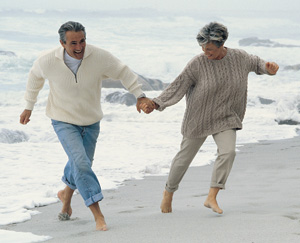Gluten Free
What does following a gluten-free diet mean? That you're embarking on an easy diet with a wide range of health-promoting effects. Instead of dwelling on what you’re giving up, consider that you’re going to enjoy a whole new world of delicious food options to meet your special dietary needs. You’ll be eating seasonally, choosing more fresh fruits and vegetables, focusing on meats, seafood, poultry, legumes, lentils, corn, and rice, and discovering fascinating ancient grains such as quinoa, amaranth, and millet. You’ll be able to eat potatoes, eggs, most cheeses, even chocolate (!)—and enjoy them without guilt because you’ll be taking good care of your body. In fact, you’ll probably end up eating—and feeling—better than ever!
Visit this page for more information about living Gluten Free
---
We carry a large variety of gluten free items, the brands listed below represent just some of the offerings we carry















More Diets

Related Topics
- By Maureen Williams, ND
Seniors: Step It Up for a Bigger Brain
Like so many tissues throughout the body, the brain tends to shrink, or atrophy, a bit as we age. In particular, a part of the brain called the hippocampus is known to atrophy late in life, and as it shrinks, so does memory. A study shows that we might be able to intervene in this aspect of aging by demonstrating that older adults who start a moderately intense walking program can prevent atrophy of the hippocampus and loss of memory.
Older adults who start a moderately intense walking program may prevent memory loss
Elders engage in walking and stretching
The study, published in the Proceedings of the National Academy of Sciences, included 120 adults between 55 and 80 years old who did not have dementia. They were assigned to participate in either an aerobic walking program or a stretching program three times per week for one year. Memory tests were performed and hippocampus size was measured using MRI at the beginning, middle, and end of the study. Fitness levels were also assessed before and after the trial.
The walking group started by walking 10 minutes per session, increasing by 5-minute increments each week until they reached 40 minutes of walking per session, which they maintained for the remainder of the trial. People in the walking group used heart monitors to be sure that they were getting a moderately intense aerobic workout. The stretching group engaged in exercises to improve flexibility, strength, and balance.
Exercise increases brain size, and good memory is linked to fitness
At the end of the trial:
- The average hippocampus size increased by about 2% in the walking group but decreased by 1.4% in the stretching group.
- Scores on memory tests improved similarly in both the walkers and the stretchers.
- People in both groups with high levels of fitness performed better on memory tests than people with low fitness levels.
“These results clearly indicate that aerobic exercise is neuroprotective,” the study’s authors concluded, “and that starting an exercise regimen later in life is not futile for either enhancing cognition or augmenting brain volume.”
Ready, set, go!
The evidence in favor of exercise shows it’s never too late to get started. Here are some tips for people over 50 who want to start exercising:
- Pick something you like to do. Remember that the best exercise program is the one you stick to.
- Set yourself up for success by starting with reasonable goals. Then adjust your goals by increasing intensity and time gradually.
- Find a friend. A committed friend or group of exercise buddies can help motivate you on days you don’t quite feel like going. Dogs can really be your best friend when it comes to exercise, as their need for daily exercise can be a great motivator for their two-legged family members.
- Consider a heart rate monitor. Ask your physician or a personal trainer for guidance in calculating your target heart rate for exercise. Staying close to your target heart rate means you are working out at a pace that will increase your fitness and is safe for your heart.
- Make a habit of it. Whatever exercise program you decide to embark on, making it a regular habit now will help you stick to it for the long term.
(Proc Natl Acad Sci 2011;108:3017–22)









